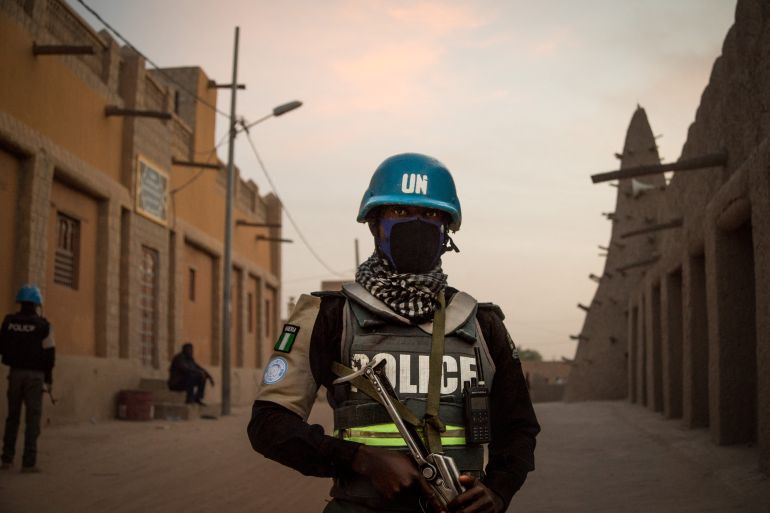Mali’s government has made an urgent appeal to the United Nations to withdraw its peacekeeping troops, known as MINUSMA, citing the mission’s failure to address the nation’s pressing security issues.
Speaking to the UN Security Council on Friday, Mali’s Foreign Minister, Abdoulaye Diop, who serves under the country’s interim military authorities, called for an immediate withdrawal of the peacekeeping force from the West African nation.
This comes as Germany’s Bundestag voted in late May to extend the nation’s military involvement in Mali as part of the United Nations’ peacekeeping mission, MINUSMA, for an additional year. The renewed mandate, marking the final extension, will be effective until May 31 of next year.
El Ghassim Wane, the head of the UN mission in Mali, responded to Mr. Diop’s comments by stating that peacekeeping operations hinge on the consent of the host nation, and without such consent, these operations are nearly unviable. “It’s a decision that the council has to make,” he remarked.
The UN Security Council, consisting of 15 members, is required to decide on whether to extend MINUSMA’s mandate by June 30. A minimum of nine votes in favour and no vetoes from permanent members Russia, China, the United States, United Kingdom, or France, are required to pass the resolution.
Russia’s UN Ambassador, Vassily Nebenzia, stressed that the mission could only succeed if it operates in close coordination with Mali and respects its sovereignty. He added, “The real issue is not the number of peacekeepers but the functions, and one of the key tasks for the government of Mali is fighting terrorism, which is not provided for in the mandate of the blue helmets.”
The Malian government has also recently ended its longstanding alliance with France, its former colonial power, and has imposed increasing operational restrictions on peacekeepers.
“The government of Mali calls for the withdrawal without delay of MINUSMA,” Diop declared. He expressed the government’s willingness to cooperate with the United Nations on this matter, but categorically rejected all options to alter the mission’s mandate as proposed by UN Secretary-General Antonio Guterres.
Earlier in January, Guterres presented three potential options for the modification of the mission, ranging from an increase in personnel to a withdrawal of troops. In a report released earlier this week, Guterres recommended an intermediate solution, urging the UN Security Council to “reconfigure” the operation to focus on a limited number of priorities.
Since its inception in 2013, MINUSMA has become the deadliest UN mission in the world, with over 300 peacekeepers losing their lives. Established to stabilize Mali after a Tuareg rebellion in 2012, MINUSMA has struggled to curb the spread of insurgency. The rebels were initially expelled from power in northern Mali through a French-led military operation but regrouped in the desert, launching attacks on the Malian army and its allies.
The military government in Mali has increasingly been at odds with MINUSMA and other international allies, including France. Mr. Diop noted that MINUSMA “seems to have become part of the problem by fuelling community tensions.” He referenced a damning report by the UN High Commissioner for Human Rights concerning an anti-rebel operation in Moura in March 2022.
This call for withdrawal comes at a critical juncture as Mali prepares for a referendum this Sunday, where citizens will cast their votes on constitutional amendments to strengthen presidential powers. This marks the beginning of a series of polls aiming to transition Mali from military rule back to democracy, with presidential elections slated for February 2024.
Image Credit: Florent Vergnes/AFP





